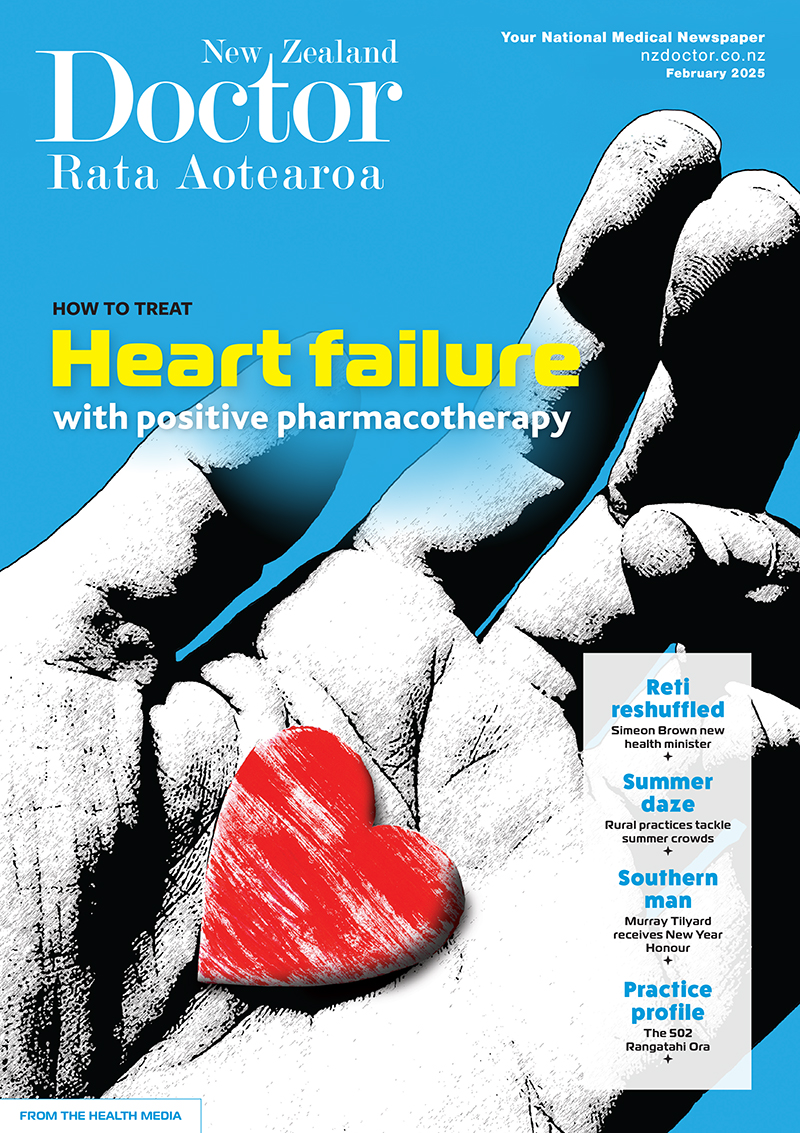Pharmacist prescribers Linda Bryant and Leanne Te Karu discuss positive polypharmacy for heart failure. Current evidence shows the intensive implementation of four medications offers the greatest benefit to most patients with heart failure, with significant reductions in cardiovascular mortality, heart failure hospitalisations and all-cause mortality
Meningococcal disease in Wellington region
Meningococcal disease in Wellington region

Te Whatu Ora is calling on people to be alert for meningococcal symptoms. This comes following the recent tragic death of a person with meningococcal disease in the Wellington region.
Dr Craig Thornley, Te Whatu Ora, Medical Officer of Health, National Public Health Service said, “Our condolences are with the family at this time. Out of respect to them we will not be releasing any further information on this death.”
Meningococcal disease symptoms typically develop very quickly over a few hours, but in some cases may develop more slowly over several days. A person with meningococcal disease may only have some of the symptoms. The symptoms don't develop in any particular order.
Common symptoms of meningococcal disease include:
a fever (high temperature), although their hands and feet may feel cold
vomiting
muscle and joint aches and pains.
Common symptoms of meningitis include:
a headache, which may be severe
a stiff neck
sensitivity to bright light
drowsiness and confusion (being hard to wake them).
A red or purple rash is common, but it doesn't always happen. One or two spots can appear anywhere on the body then many more appear looking like rash or bruises.
If you’re concerned that someone in your family might have meningococcal disease, call your doctor straight away or call Healthline 0800 611 116 24/7 or dial 111. Say what the symptoms are.
If you have seen a doctor and gone home, but are still concerned, don't hesitate to call your doctor again or seek further medical advice.
Members of the same household as a person who has the disease are at the highest risk of getting it, including those living in a hall of residence or boarding schools. We have followed up with everyone who had contact with the patient, including family members, and are satisfied that there is no further health risk to them.
Up to 15% of people carry the bacteria that cause meningococcal disease in their nose and throat without being sick. In some people, for reasons we don’t fully understand, these bacteria sometimes go on to cause disease, spreading through the bloodstream (causing blood poisoning) or to the brain (causing meningitis). The bacteria are spread in secretions from the nose or throat by coughing, sneezing, and kissing.
More information on meningococcal disease is available here
Immunisation
A funded meningococcal B vaccine is available to protect against meningococcal disease
in children up to 12 months of age, administered as part of the childhood immunisation
programme.
A free catch-up programme is available until 31 August 2025 for all other tamariki aged
under five years old.
The vaccine is also funded for people aged 13 to 25 years who are entering into or in their first year of specified close-living situations such as halls of residence or in boarding schools. “I would strongly encourage those who are eligible to get their vaccinations for the extra protection, whether that is at your tertiary medical centre or general practice,” says Dr Thornley.
A free catch-up programme is available until 28 February 2024 for all people aged 13-25 currently living in boarding schools, university hostels, military barracks, or correctional facilities for the meningococcal B vaccine.
See www.healthnavigator.org.nz/medicines/m/meningococcal-vaccines-overview/ for more
information



